Why Is Africa Poor?
Economic unfreedom, not slavery or colonialism, holds the continent back
Economics
WHY IS AFRICA POOR?
Economic unfreedom, not slavery or colonialism, holds the continent back
Magatte Wade
Africa is rich in resources, but its people are POOR. Something is clearly missing. What is it? The answer: economic freedom.
Economic freedom isn’t complicated. It just means people can work, trade, and start businesses without being blocked by high taxes, overregulation, or endless rules. It means people have the power to build their own futures. African countries rank among the least economically free on Earth (Figure 1).
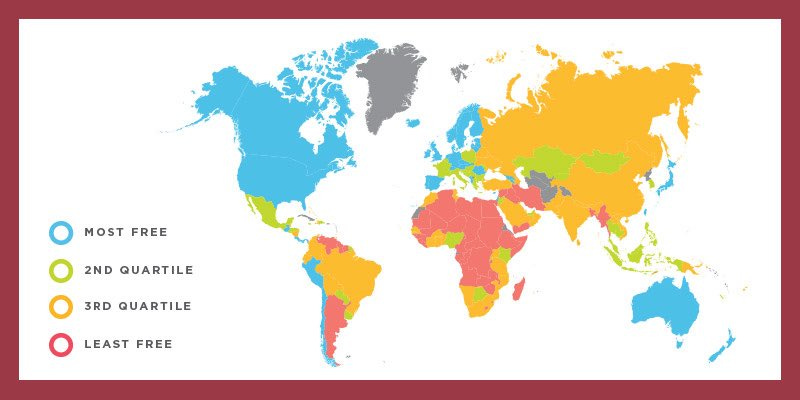
Why does economic freedom matter? Because when people are free to work, trade, and create, they thrive. In freer countries people live longer (16 years more on average). In freer countries almost no one lives in extreme poverty (1% vs. 30% in the least free places). In freer countries education, especially for girls, takes off. In freer countries corruption is lower. In freer countries per capita income is higher (Figure 2).
Look at places like Singapore and Switzerland in Figure 2. They don’t have gold mines or oil fields, yet their people are wealthy. Why? Because they made it easy to start businesses, trade, and invest. They removed barriers to growth.
Singapore is a recent success story. When Singapore became independent in 1965 it was a very poor country. Since then, it has grown at the tremendous average rate of 7% a year. Today it is a rich country. (See Figure 3.)
In many African countries, starting a business is harder than running a marathon. Permits take forever, bribes eat into your budget, and by the time you’re done, you’ve lost time, money, and competitiveness.
Most people, both Africans and non-Africans, do not understand this. As I say in the video below, if you line up 100 Africans on one side and 100 non-Africans on the other, and you ask them, Why is Africa poor?, most Africans (and their allies) will come up with the usual suspects: colonialism, slavery, they’re stealing our natural resources, racism, yada yada yada yada. But non-Africans who are not allies of Africans and have no compassion whatsoever would tend to say low IQ, they fight all the time, they’re lazy, they’re crooks. Both sides would also say bad leaders, bad government. But do you know what I don’t hear from either side? No one will say, Africa is the poorest region in the world today because it is the most over-regulated region in the world. It is the place in the world where it is hardest for any entrepreneur to do business. And that’s the right answer to the question of African poverty.
Corruption makes economic unfreedom even worse, of course. But corruption is a result of economic unfreedom. When there are endless regulations, bribery becomes the only means of accomplishing anything. When property rights aren’t protected or laws change without warning, people lose trust in the system and begin to resort to corruption. Then investment falls because no one wants to invest in the uncertainty corruption brings. With clear, fair, and predictable rules—but not so many that it impedes entrepreneurship—corruption diminishes.
Trade is another issue. Africa should be the most connected continent, but it’s not. Tariffs, quotas, and inefficiency make it easier to trade with Europe than our neighbors. We lose billions of dollars every year because of this.
We don’t have to stay stuck in these broken systems. Mauritius shows us what’s possible (Figure 3). They opened trade, cut red tape, and attracted investment. The country’s GDP per capita has more than doubled in the last 20 years, ranking higher than countries like South Africa, Brazil, and Serbia.
Economic freedom works because it incentivizes people to take control of their lives. When governments step back from high taxes, overregulation, and endless, impossible-to-navigate rules, people rise. They build businesses, create wealth, and transform their communities.
That’s why I fight for fair systems and fewer barriers. Entrepreneurs shouldn’t have to jump through endless hoops to start businesses. Laws should protect people, not punish them. And trade should unite Africa, not divide it.
To solve all these problems, we’re building Próspera Africa. We plan to transform cities in Africa so that they become places where starting a business is easy, more jobs are created, and poverty becomes a thing of the past. These cities will become spaces to work, trade, and succeed.
Clearly, the math doesn’t lie: the freer the country, the richer the people (Figure 5). GDP per capita is 8 times higher in free countries, and extreme poverty is 16 times greater in the least-free ones. Africa, we know what works, and we’re already working on the solution.
Imagine this:
Starting a business in minutes, not months or years, as in the worst cases currently.
Access to sound money to empower people to save and trade globally.
Trade flowing freely across Africa.
Innovation flourishing as African talent is unleashed.
The world looking to Africa with respect, not pity.
This is the Africa we can create: one built on freedom, creativity, and the limitless potential of its people. If you believe in this future, follow Próspera Africa, a branch of Próspera Global, which is already doing great work in Latin America. Together, we can make it real. Let’s do this!
Magatte Wade is a distinguished entrepreneur who bridges the cultures of Senegal and Silicon Valley, drawing insights from her experiences in both environments. She previously published “12 Principles I Live By” in the Journal of FBT. Wade is the co-Founder of Prospera Africa, the leading governance platform developing Prospera Cities (next generation special economic zones). As the Director of the Center for African Prosperity at Atlas Network, she brings a unique perspective to her role. Wade has been invited to share her expertise at prestigious institutions and events, including the UN, Aspen Institute, and several renowned universities. Wade has written a book, The Heart of A Cheetah: How We Have Been Lied to about African Poverty and What That Means for Human Flourishing. In addition to founding and leading the skincare company Skin Is Skin, she hosts her own podcast, “The Magatte Wade Show.” Recognized as a prominent figure in African entrepreneurship, Wade was awarded the Julian L. Simon Memorial Award by the Competitive Enterprise Institute in 2024. This post began as a thread on X, where you can follow Wade. We encourage you also to follow her on Substack and check out her website.

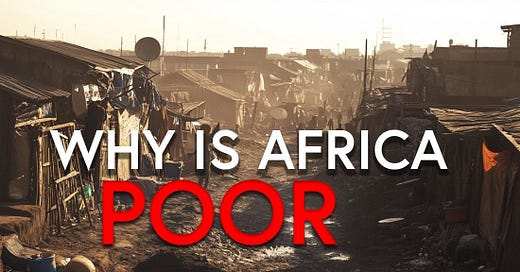


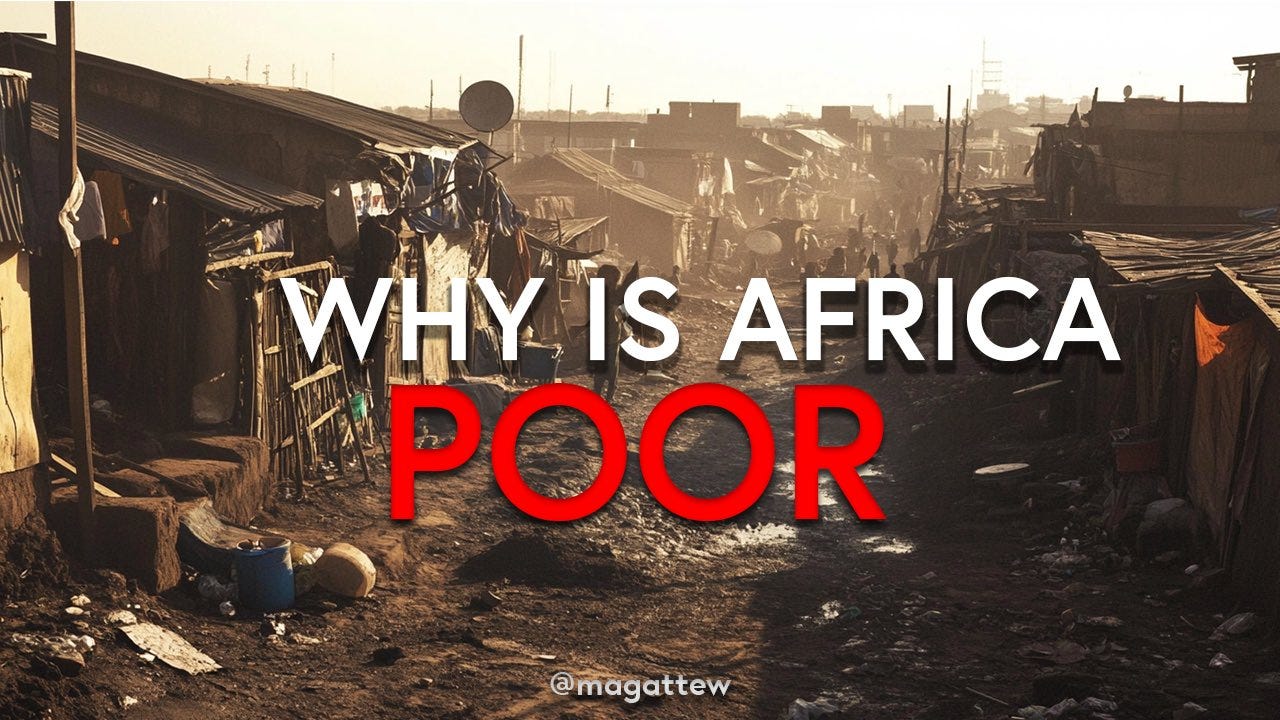
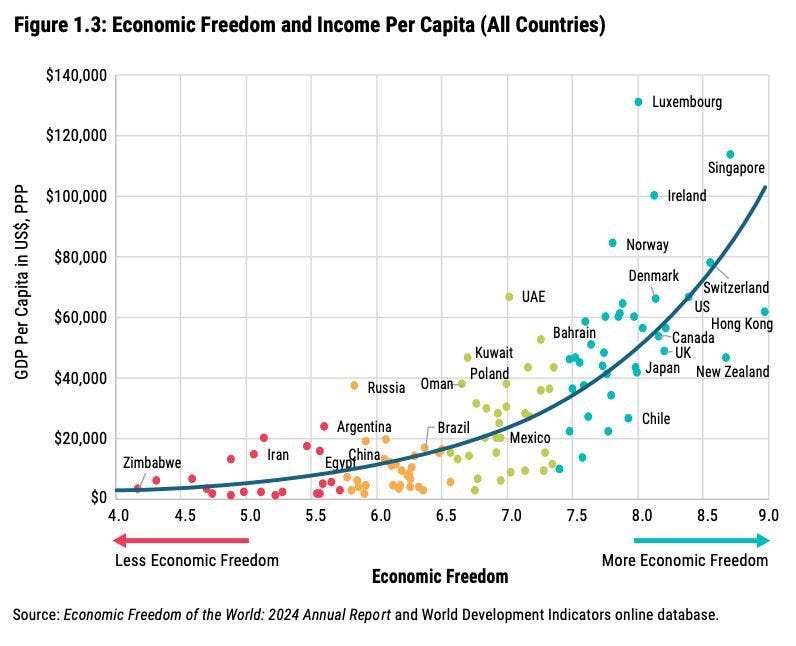
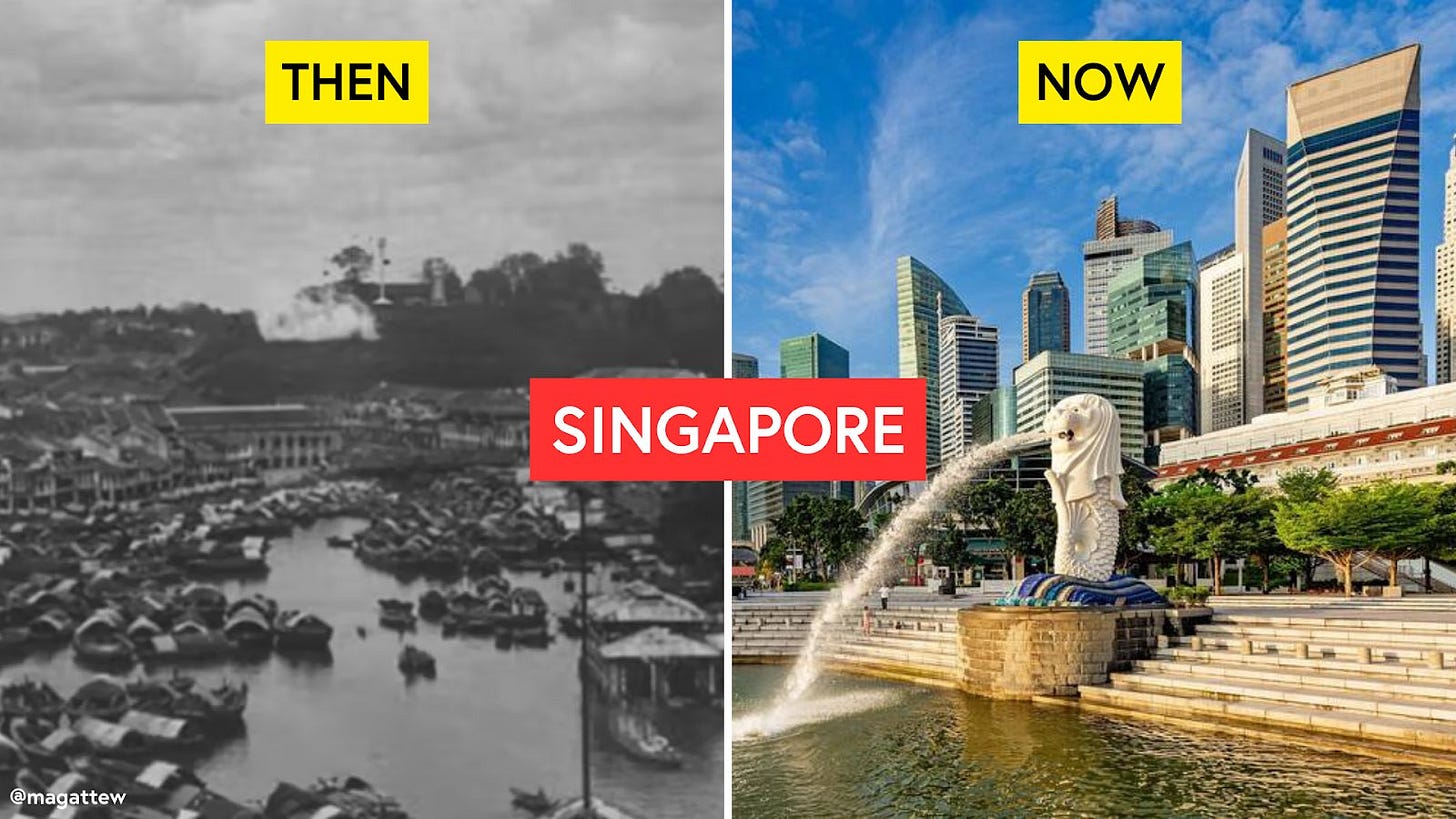
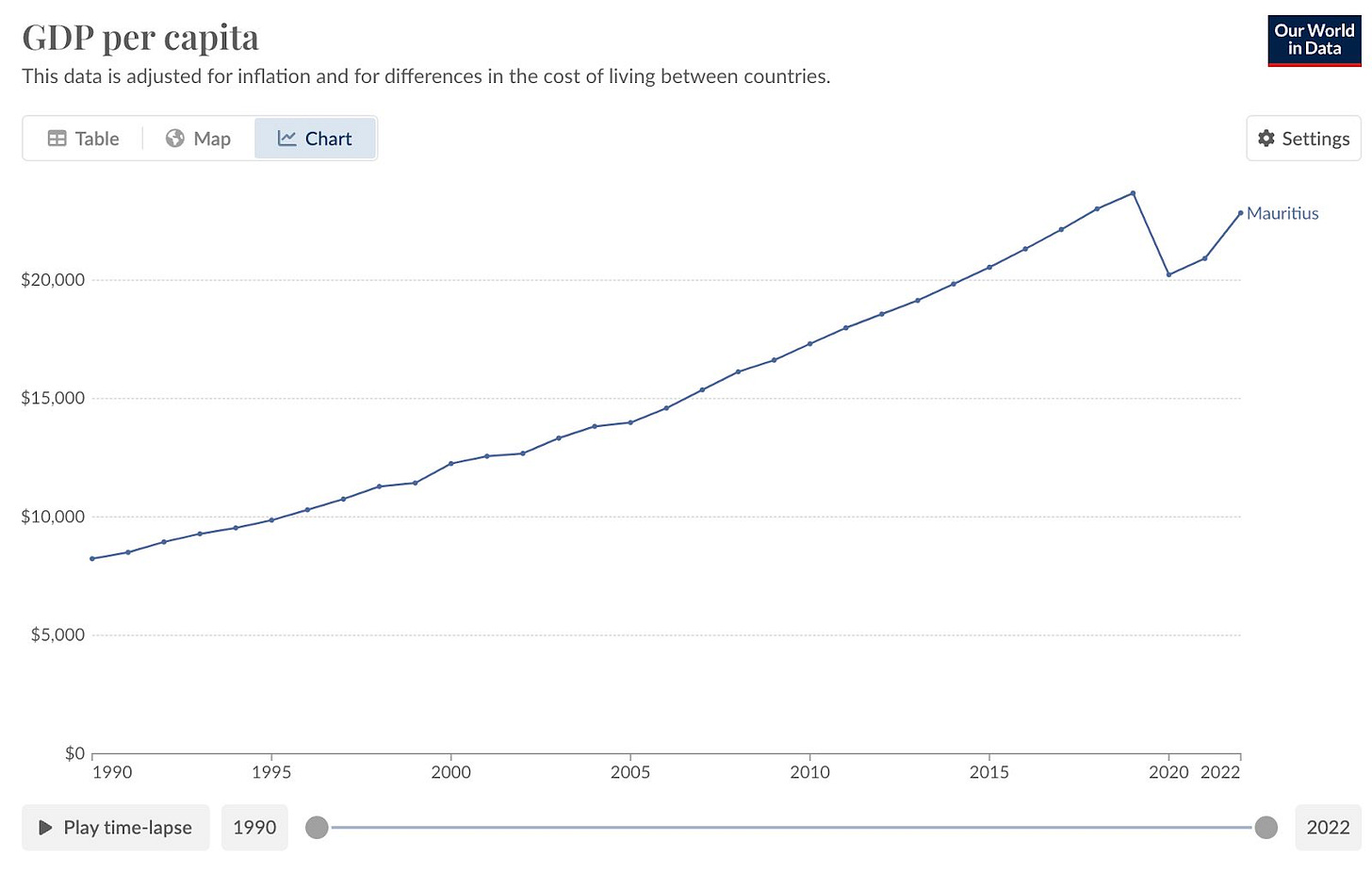
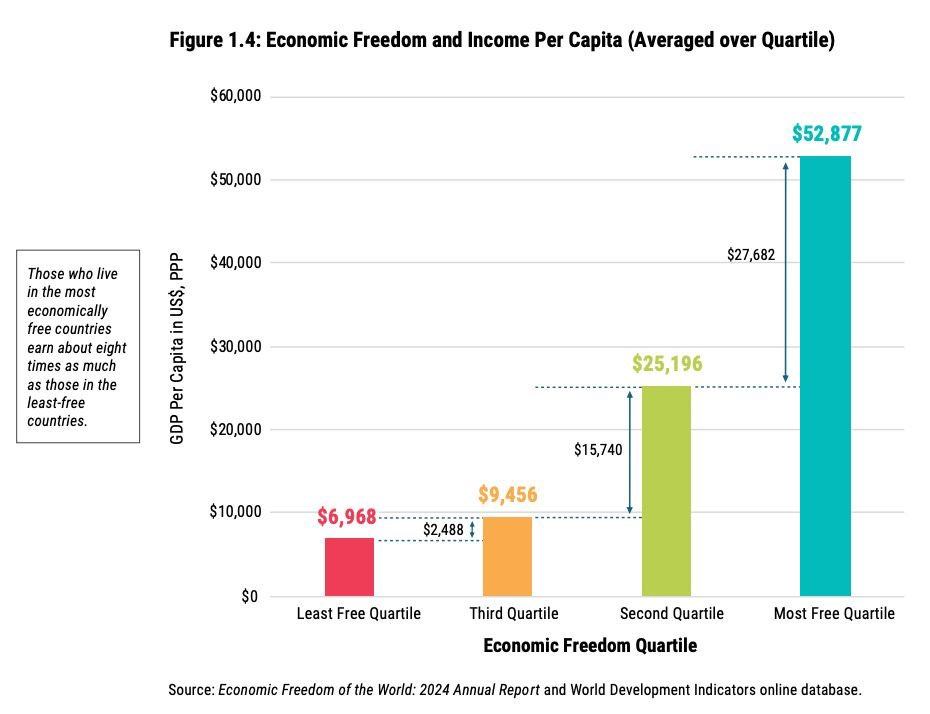
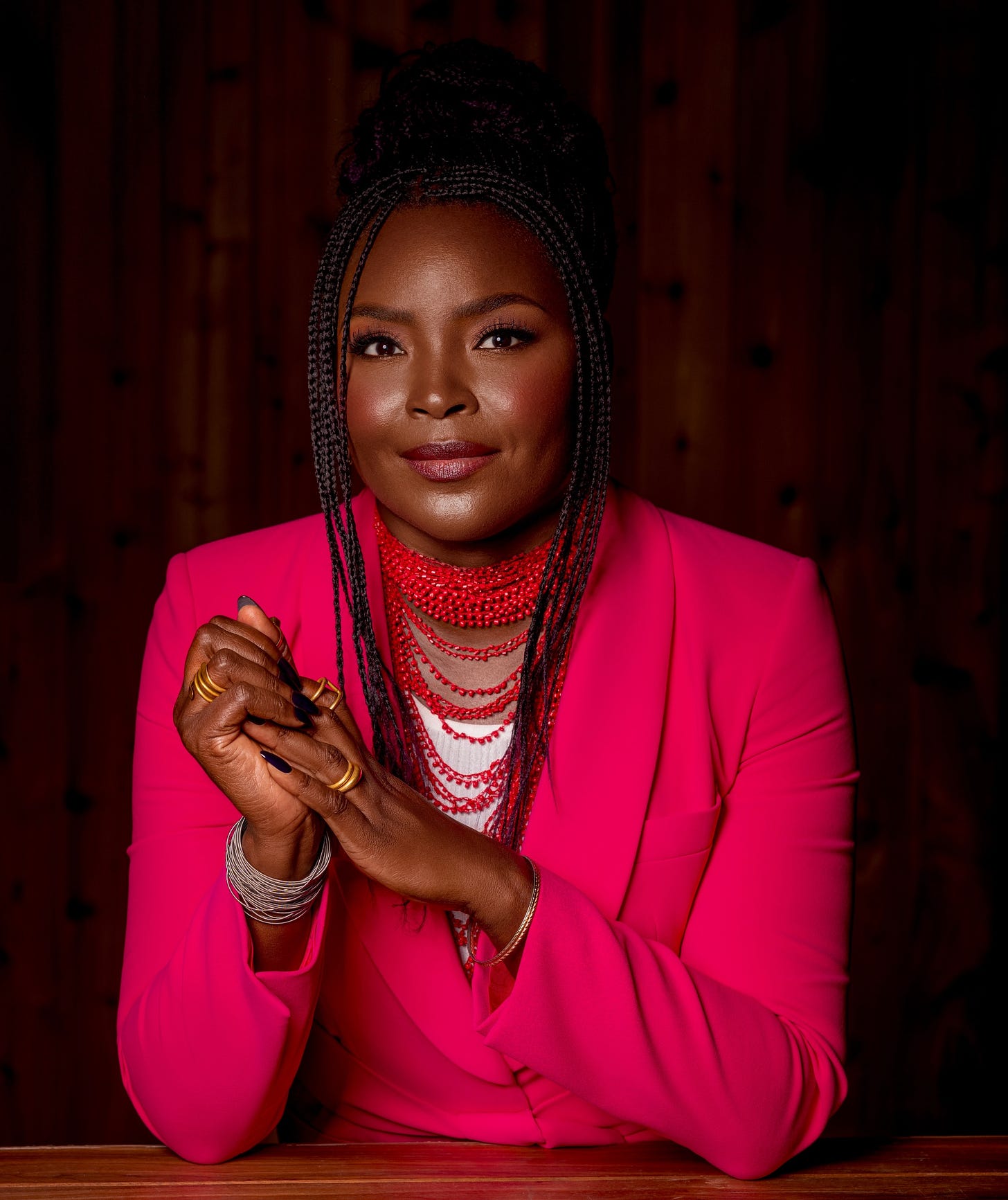
Thank you for this article, it's an interesting read, but I have an issue with a certain narrative that is common amongst African writers who write about Africa to a predominantly western audience and I fear that African affairs are being coloured in the light of American culture war narratives of victim Vs victor, racism etc. an example of this can be found in a point you made which I'll quote below
"As I say in the video below, if you line up 100 Africans on one side and 100 non-Africans on the other, and you ask them, Why is Africa poor?, most Africans (and their allies) will come up with the usual suspects: colonialism, slavery, they’re stealing our natural resources, racism, yada yada yada yada."
The point you made above is so painfully wrong and unimformed that I'm astonished that you would make such a point. If you indeed lined up 100 Africans, colonialism and slavery, would not be in the top 5 reasons, that's if they're mentioned at all. Racism will not even be mentioned. Africans are more likely to blame corruption, bad government, mismanagement and a host of other things you mentioned rather than mentioning colonialism and slavery or racism.
Africans are so past these things that they exhibit a snubbish attitude towards African Americans when they emigrate to the west when things like slavery and racism are mentioned as holding Black people back.
So, why would you write something that's obviously incorrect? I have seen this trend amongst many Black writers writing for a western audience. This narrative of looking at African affairs through a western culture war narrative paints a false picture.
You're more likely to hear complaints like the one you mentioned from Africans living in the diaspora rather than those on the continent, that's because they have also imbibed western culture war narratives as causative factors. Most Africans aren't worried about racism not in the least.
Lastly to answer the question, why is Africa poor, it's due to varied number of factors and yes that includes the ones you mentioned such as corruption, bribery, etc, just as much as it includes the ones you're disputing such as colonialism/neocolonialism, resource exploitation, predatory loans and the setup of the global economy which favours the global North at the expense of the global South, while the points you mentioned are much more obvious, the points you're disagreeing with are much more sinister because there is a tendency to ignore them and paint whoever raises them up as playing the victim, many things can be right at the same time.
Thank you
Wow, what an interesting point of view! I never put corruption in the context of economic unfreedom, but it absolutely makes sense! It was (is) the same in Communist countries, some of the poorest and more corrupt places on earth, and not for lack of resources. Thank you for this article!